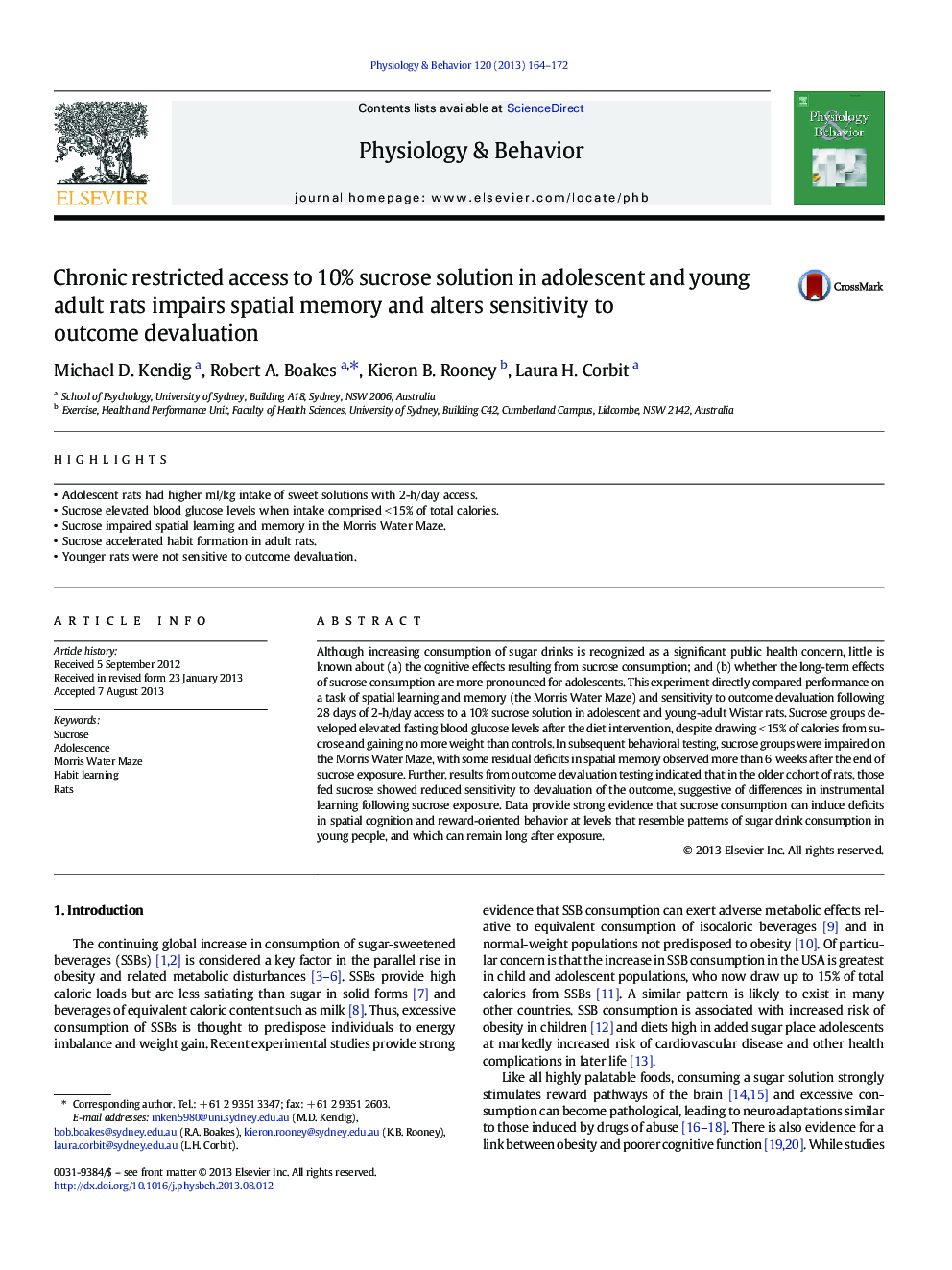| Article ID | Journal | Published Year | Pages | File Type |
|---|---|---|---|---|
| 5924649 | Physiology & Behavior | 2013 | 9 Pages |
Abstract
Although increasing consumption of sugar drinks is recognized as a significant public health concern, little is known about (a) the cognitive effects resulting from sucrose consumption; and (b) whether the long-term effects of sucrose consumption are more pronounced for adolescents. This experiment directly compared performance on a task of spatial learning and memory (the Morris Water Maze) and sensitivity to outcome devaluation following 28Â days of 2-h/day access to a 10% sucrose solution in adolescent and young-adult Wistar rats. Sucrose groups developed elevated fasting blood glucose levels after the diet intervention, despite drawing <Â 15% of calories from sucrose and gaining no more weight than controls. In subsequent behavioral testing, sucrose groups were impaired on the Morris Water Maze, with some residual deficits in spatial memory observed more than 6Â weeks after the end of sucrose exposure. Further, results from outcome devaluation testing indicated that in the older cohort of rats, those fed sucrose showed reduced sensitivity to devaluation of the outcome, suggestive of differences in instrumental learning following sucrose exposure. Data provide strong evidence that sucrose consumption can induce deficits in spatial cognition and reward-oriented behavior at levels that resemble patterns of sugar drink consumption in young people, and which can remain long after exposure.
Related Topics
Life Sciences
Biochemistry, Genetics and Molecular Biology
Physiology
Authors
Michael D. Kendig, Robert A. Boakes, Kieron B. Rooney, Laura H. Corbit,
